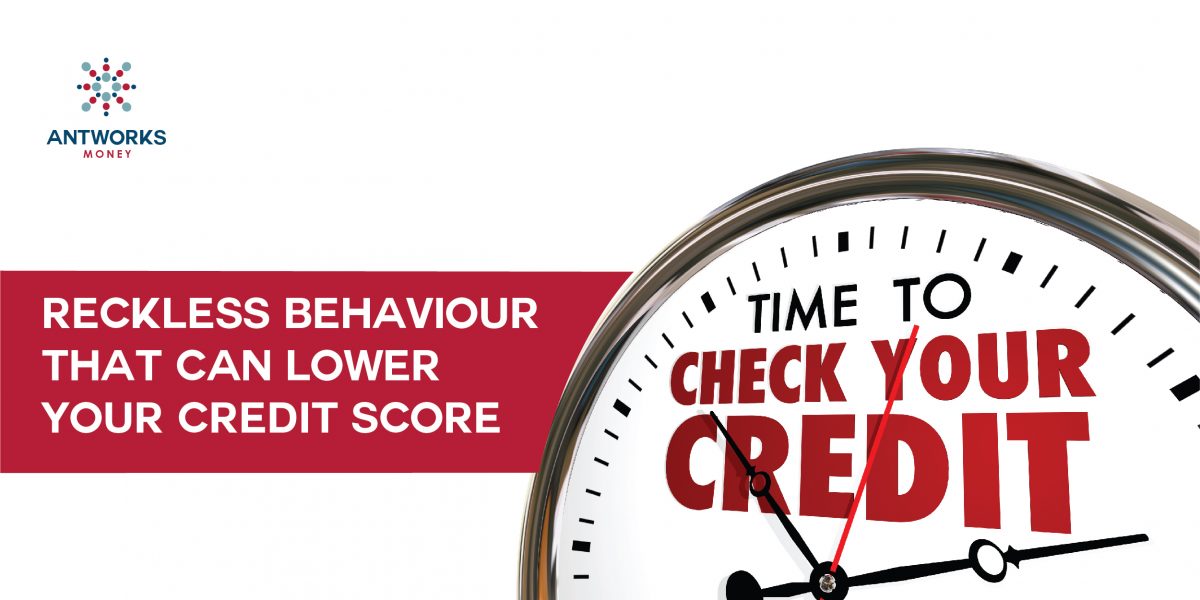
Reckless Behavior that can Lower your Credit Score
Your credit score has a huge impact on your life, especially on financial matters. Sadly, no one has a manual listing the do’s and don’ts for a healthy credit history. You have to work it out all on your own unless you have a fleet of credit experts to take care of your personal finances. Finding what’s good and what’s bad requires time and expertise.
This lack of knowledge of the working of credit scores leads one to make mistakes that are often costly and difficult to be repaired. Did you know that when you apply for a personal loan with poor credit, you are either charged higher interest rates than the norms or your loan approval might be rejected? So it’s imperative that you maintain your credit scores in top shape.
Here is the list of bad financial habits that are wreaking havoc on your credit scores. If you find yourself doing any one of these, it’s time to turn over a new leaf and boost your creditworthines. Check your free credit score report online.
-
Surrendering existing credit cards
Most people falsely assume that more the number of credit cards, lower are the scores. This leads them to take an over-cautious approach and surrender existing credit cards. While it’s true that applying for a credit card raises a hard inquiry on your credit report, surrendering some cards also does the same.
When you cancel an existing card, your credit utilization ratio shoots up. For instance, let’s assume a person A has a credit limit of 3 lakhs together from all the cards he owns. Every month he spends an average of Rs.50,000/- on all his cards together. His credit utilization ratio is now around 16%. He gives up two cards which reduce his credit limit to 1.8 lakhs. For his current spending pattern, his ratio shoots up to 33-35%.
Thus, his surrendering his credit cards impacts his CIBIL score negatively.
-
Asking for an increase in Credit limit
When you request for an increase in credit card limit, the bank will contact CIBIL to check your credit score. This is noted as a hard inquiry on your report and ultimately can lead to lowering your credit scores. So, do not make a request for increasing your limit, unless you need it.
-
Being Over-Cautious when using Credit Cards
Many people have the mindset that using credit cards will lead to unnecessary spending. While it’s true that reckless spending can lead you into debts, the fact is that if you have no expenditures and repayment history, then CIBIL is unable to rate your credit history. Lack of credit transactions will bring your score down. So, it makes sense to use your credit card to make routine purchases regularly. The key here is to pay it back on time.
-
Failure to check your Credit History for Errors
It’s a good practice to keep a tab on your credit history once a year. Often there are errors made by banks or even misuse of your credit identity by fraudsters. Check your credit history often to catch any discrepancies and rectify it as soon as possible. When you request for your credit report, it’s treated as a soft inquiry and doesn’t affect the score.
-
Staying away from Availing Loans
A huge majority of the working population has a credit card, but not all have availed a personal loan, home loan or a car loan. Your credit history must contain the right mix of credit cards as well as other EMIs. This shows your ability to handle different types of credits and reflects positively on your scores.
If you find yourself committing any of these mistakes, then it’s time to rectify them as quickly as possible.
Contact Antworksmoney for credit counseling services.





